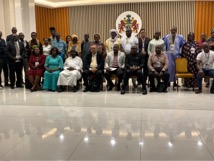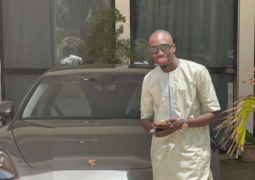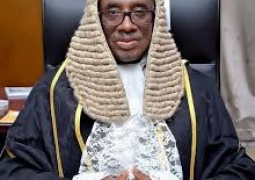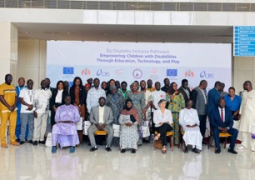
The event brought together civil society leaders from across Africa to address pressing issues affecting the continent and generate resolutions and recommendations for their respective nations.
The forum focused on themes of impunity, climate change, and the role of civil society in demanding accountability, with participants calling for renewed efforts to strengthen African unity and tackle human rights violations.
Hannah Forster, Executive Director of ACDHRS, reflected on the success of the forum, stating her appreciation for the active participation and commitment of the attendees. "Even if we extended the program, participants remain energised," she said, thanking the Ford Foundation and Open Society for their support.
Mouhamed Mabassa Sall, a member of the ACHRDS Governing Council's Executive Committee, noted that the forum provided a space for extensive discussions and debates, leading to valuable resolutions and recommendations. He expressed concern over Africa’s struggles with impunity, warning of the possibility of another genocide, reminiscent of Rwanda.
Sall highlighted the prevalence of hate speech, conflict, climate change, and impunity, calling for urgent action to address climate change and re-energise the African Union, warning of impending disaster if these issues are not tackled.
Jeagan Grey-Johnson from Open Society emphasised the stagnation of Africa’s progress, attributing the responsibility for change to civil society. He stressed that the role of civil society is crucial in holding governments accountable, stating: "This is a space only you can create by consistently demanding public accountability."
Mr Grey-Johnson also raised concerns about the slow ratification of the Freedom of Movement Protocol, with only four countries having ratified it. He urged stakeholders to prioritise its ratification to advance African integration.
Dabesaki Mac-Ikemenjima, Senior Programme Officer at the Ford Foundation, underscored the importance of solidarity among African movements, human rights defenders, and leaders.
He highlighted solidarity as key to driving forward a collective agenda and ensuring mutual support during crises, conflicts, and disasters. He also called for stronger cross-border collaboration among rights leaders and acknowledged the role of the ACDHRS in facilitating these discussions.
The Gambia's National Human Rights Commission Chair Emmanuel Joof, in his remarks, commended the forum for selecting education as a central theme.
He stressed the urgent need to address educational gaps across the continent, particularly in conflict zones where students and teachers face severe threats. Joof also advocated for incorporating peace education into school curriculums and called for greater collaboration among NGOs, the African Commission, and other human rights bodies to ensure education thrives even in the most challenging environments.





